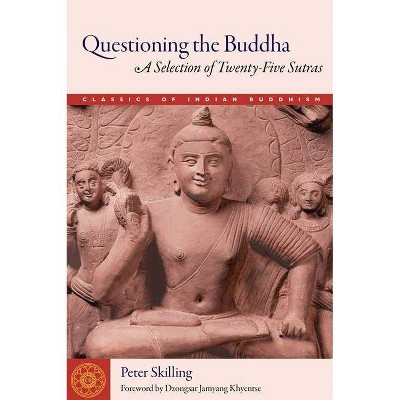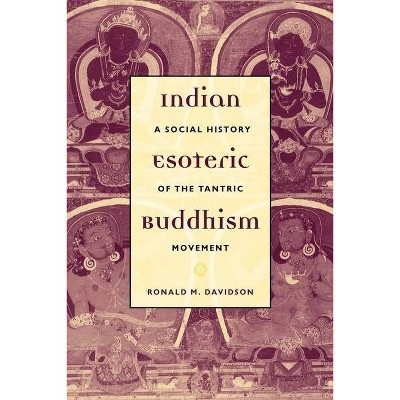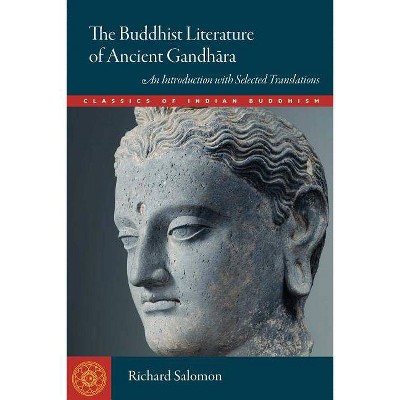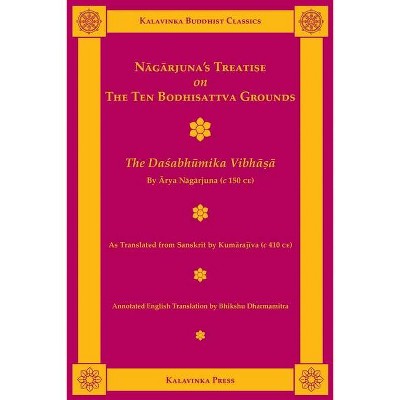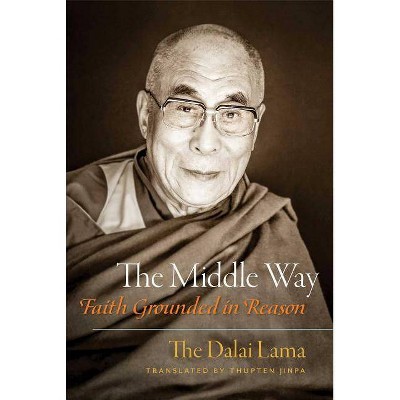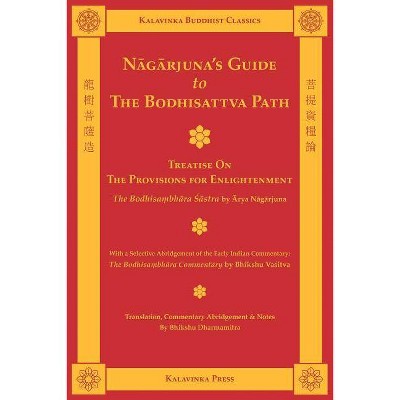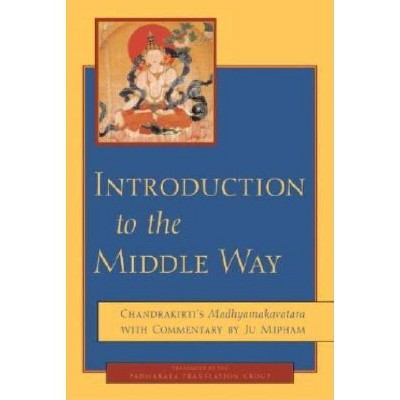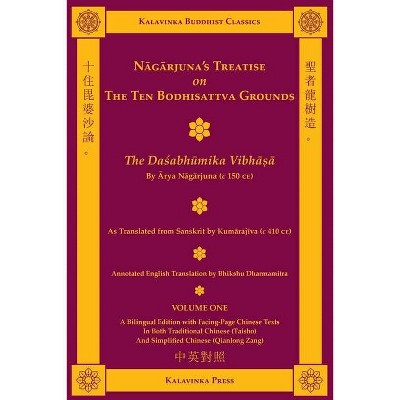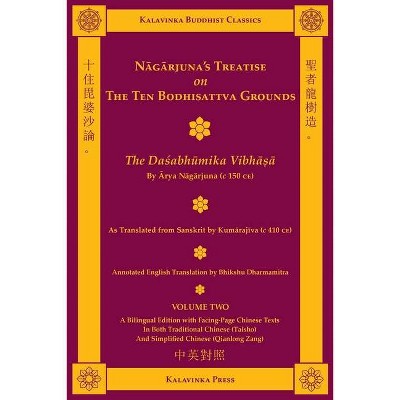Nagarjuna's Middle Way - (Classics of Indian Buddhism) by Mark Siderits & Shoryu Katsura (Paperback)
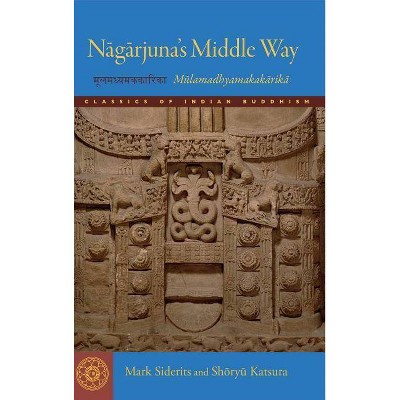
Similar Products
Products of same category from the store
AllProduct info
<p/><br></br><p><b> About the Book </b></p></br></br>Nagarjuna's renowned twentyseven-chapter "Fundamental Verses on the Middle Way" ("Mulamadhyamakakarika"), the definitive, touchstone presentation of the doctrine of emptiness, is the foundational text of the Madhyamaka school of Mahayana Buddhist philosophy. Professors Siderits and Katsura prepared this translation using the four surviving Indian commentaries in an attempt to reconstruct an interpretation of its enigmatic verses that adheres as closely as possible to that of its earliest proponents. Each verse is accompanied by concise, lively exposition by the authors conveying the explanations of the Indian commentators. The result is a translation that balances the demands for fidelity and accessibility.<BR><p/><br></br><p><b> Book Synopsis </b></p></br></br>Winner of the 2014 Khyenste Foundation Translation Prize. <p/>Nagarjuna's renowned twenty-seven-chapter <i>Fundamental Verses on the Middle Way (Mulamadhyamakakarika)</i> is the foundational text of the Madhyamaka school of Mahayana Buddhist philosophy. It is the definitive, touchstone presentation of the doctrine of emptiness. Professors Siderits and Katsura prepared this translation using the four surviving Indian commentaries in an attempt to reconstruct an interpretation of its enigmatic verses that adheres as closely as possible to that of its earliest proponents. Each verse is accompanied by concise, lively exposition by the authors conveying the explanations of the Indian commentators. The result is a translation that balances the demands for fidelity and accessibility.<p/><br></br><p><b> Review Quotes </b></p></br></br><br>At last! At last we have a translation of the Mulamadhyamakakarika that can be enthusiastically recommended to students! This translation has the authentic flavour of Nagarjuna. It should certainly become the first translation of choice for all English language work on the Madhyamakakarika in the foreseeable future. It is highly recommended. Bravo - I am delighted!--Paul Williams, Emeritus Professor of Indian and Tibetan Philosophy, University of Bristol, author of Buddhist Thought: A Complete Introduction to the Indian Tradition<br><br>Mark Siderits and Shoryu Katsura have produced a masterful translation that is both philologically precise and philosophically sophisticated and sets extremely high standards for further work on the Mulamadhyamakarika. Based on the four extant Indian commentaries their explanations of Nagarjuna's concise verses are a paragon of conceptual clarity. Every student of Buddhist philosophy will want to own a copy of this book.----Jan Westerhoff, Oxford University, author of Nagarjuna's Madhyamaka: A Philosophical Introduction<br><br>Mark Siderits and Shoryu Katsura have produced what will justly be received as the go-to translation of one of the most important works of the Indian Buddhist philosophical tradition. The authors' comments--based on sensitive attention to all the available Indian commentaries on Nagarjuna's magnum opus--clarify Nagarjuna's verses with admirable concision, while yet permitting a range of interpretations of Nagarjuna's purport. Siderits and Katsura have thus achieved something remarkable -- a rendering of Nagarjuna's foundational text that is clear and concise, but that nevertheless lets us see how Nagarjuna can have been so variously read by interpreters both traditional and modern.--Dan Arnold, University of Chicago Divinity School, author of Buddhists, Brahmins, and Belief: Epistemology in South Asian Philosophy of Religion<br><br>Nagarjuna's Mulamadhyakamakarika has long been one of the most important works in the Asian philosophical traditions, but access to it is difficult for Western philosophers and scholars. Katsura and Siderits' translation and commentary renders the work accessible in an outstanding fashion. The scholarship is of the very highest quality, the translation is authoritative, and the commentary provides a picture that is vivid and illuminating.--Graham Priest, author of Logic: A Very Short Introduction<br><br>This is an amazing book. It provides a refined translation of Nagarjuna's text and creates a lucid synthesis of the traditional commentaries, pointing us on our way, challenging every step and at the same time pushing us to our own intimate insight into the fundamental matter. If a book could ever be a Zen teacher, this comes as close as we're likely to find. Every Zen student should read it, return to the pillow, then return to the text, again, and again. And again.--James Ishmael Ford, coauthor of The Book of MU<br><br>This new translation by Shoryu Katsura and Mark Siderits is accurate, faithful to the Indian interpreters, and clear. These two scholars have rendered the Madhyamakakarikas with an exemplary combination of philological and philosophical rigor, making this the translation of choice for Nagarjuna's seminal verses.--Tom Tillemans, Professor Emeritus, University of Lausanne<br><p/><br></br><p><b> About the Author </b></p></br></br><b>Mark Siderits</b> was trained in Asian and Western philosophy at the University of Hawaii and Yale University. He has taught both Asian and Western philosophy, for many years at Illinois State University, and most recently as Professor of philosophy at Seoul National University, from which he retired in 2012. He is the author or editor of five books and has published numerous articles on a wide variety of subjects in Indian Buddhist philosophy and comparative philosophy. Much of his work aims at building bridges between the classical Indian tradition and contemporary philosophy, by using insights from one tradition to cast light on problems arising in the other. <p/>Professor <b>Shoryu Katsura </b>received his training in Sanskrit and Buddhist Studies at Kyoto University and the University of Toronto. From 1974 to 2004 he taught in the Department of Indian Philosophy at Hiroshima University; from 2004 he was Professor of Buddhist Philosophy at Ryukoku University, Kyoto, until his retirement in 2012. He remains active at Ryukoku University, where he is Director of their Research Center for Buddhist Cultures in Asia. He is the author or editor of seven books, and has published over sixty articles on various facets of classical Indian Buddhist thought. He is perhaps best known for his work on Buddhist epistemology-the thought of Dignaga, Dharmakirti, and their commentators-but has also made important contributions to the study of Madhyamaka, Abhidharma, and later Mahayana thought. In addition he serves as chief priest of Kodaiji, a small Jodo-shinshu temple in Shiga Prefecture.
Price History
Price Archive shows prices from various stores, lets you see history and find the cheapest. There is no actual sale on the website. For all support, inquiry and suggestion messages communication@pricearchive.us
